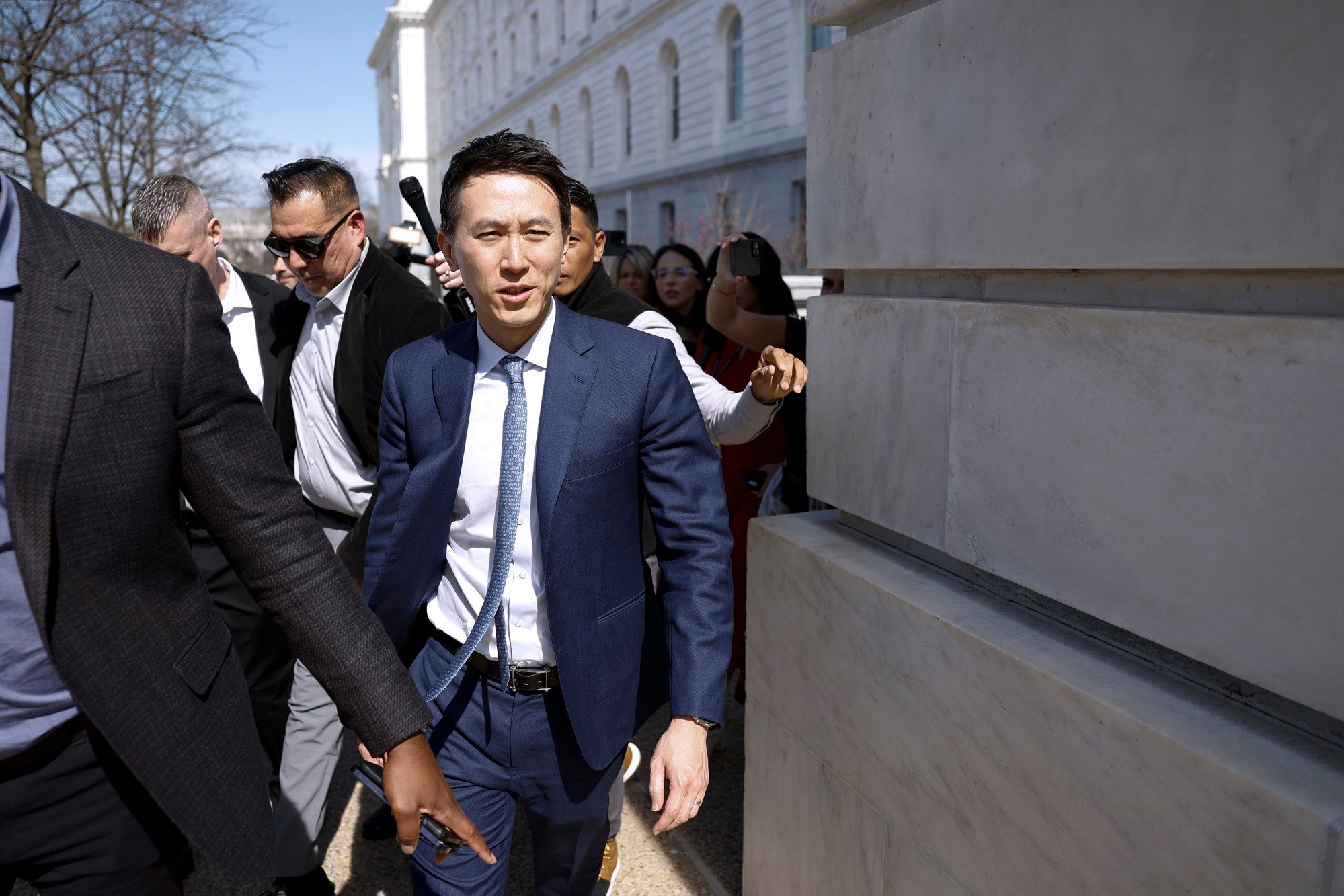This time things are different. TikTok’s US team, under the guidance of Chew, is more weathered and resourceful. Its pushback against a bill seeking to kick the popular app off Apple’s and Google’s app stores has been much more aggressive.
ByteDance raises annual bonus for high-performing employees amid restructuring
ByteDance raises annual bonus for high-performing employees amid restructuring
ByteDance has almost entirely delegated the job of dealing with American political pressure to the US TikTok team, according to one source close to the matter. In recent weeks, ByteDance’s only response to the saga was a brief denial of a Wall Street Journal report that company co-founder Zhang Yiming had discussed a sale of TikTok to potential buyers.
Neither ByteDance nor TikTok responded to requests for comment on Friday.
TikTok has made a big effort to highlight its relevance to US users and merchants. It started running television ads this week, promoting the hashtag #KeepTikTok, in multiple states including Pennsylvania, Nevada and Ohio. The campaign involves a diverse group of TikTok influencers and merchants who discuss the importance of the app.
External ads are just the latest front in a battle that started last month in the TikTok app itself, where the company sent push notifications to users urging them to call their congressional representatives to tell them to vote against the bill.
These efforts are already showing some results. The bill, which would prevent app stores in the US from distributing TikTok in the country, started to lose momentum when it reached the Senate, which has not set a timeline for considering the legislation.

TikTok’s push to get users to call Congress “is generally very correct”, said Thomas Liu, founder and CEO of the consultancy Policy Nexus. “In the US, citizens have the ‘right to petition’ to communicate their suggestions, issues, or demands to their members of Congress, which is a vital part of the American political system, and members of Congress generally value the opinions and demands of their constituents, considering the interests of the districts they represent.”
“But the approach of sending in-app alerts may reinforce some existing concerns of some members of Congress, because some US politicians may think the app can technically influence public opinion,” he added. He said that TikTok could achieve the same aim in other ways, such as through public relations campaigns in traditional media or on other social media platforms.
Zhang, who was then still ByteDance’s chairman and CEO, personally addressed the issue in an interview with the US magazine The Atlantic, in which he said he was not a member of the Chinese Communist Party.
Since 2021, after handing over his roles to his college roommate and ByteDance co-founder Liang Rubo, Zhang has been much more media shy. But he has maintained considerable influence on important corporate decisions, given he owns shares with special voting rights that give him control of the company, including TikTok, according to the Financial Times. Neither Zhang nor Liang has publicly spoken on the matter this year.
Chinese business news publication Caixin, citing multiple sources familiar with the matter, reported that ByteDance will not sell TikTok. It would be “impossible for ByteDance to sell TikTok within 180 days” and “it’s impossible for Zhang to divest”, Caixin reported.

